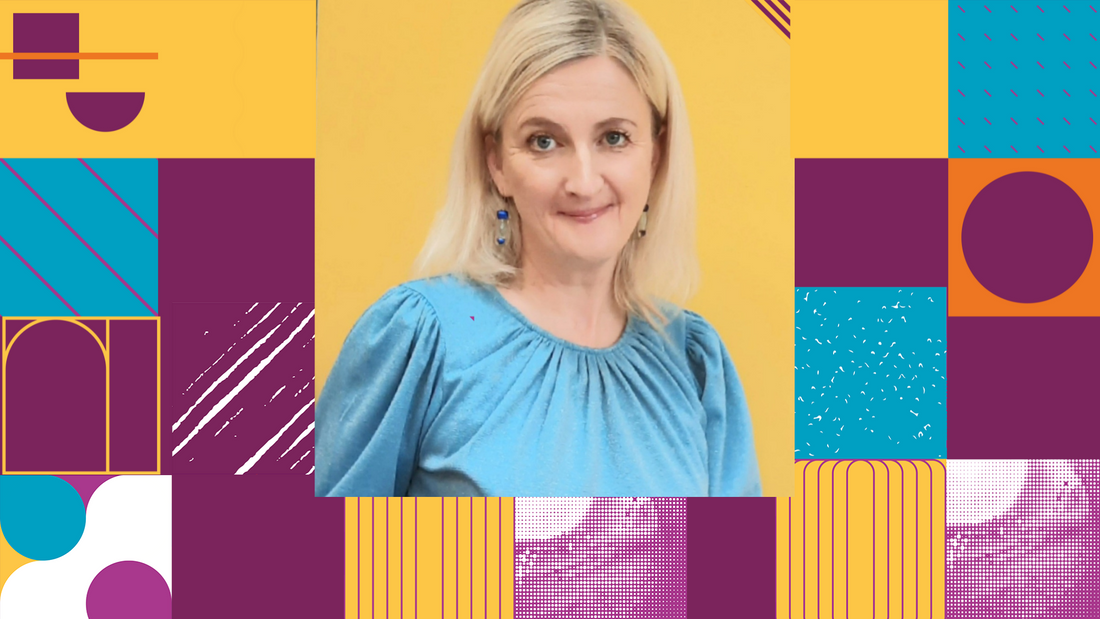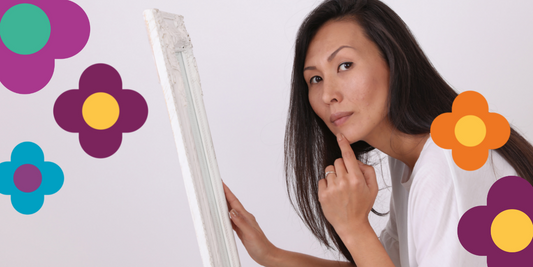Dr Mary Hynes is a Senior Clinical Psychologist and Bariatric Psychologist who has extensive training in psychological assessment and therapy. There is no one better to talk to about emotional considerations around menopause than Dr Hynes.
She boasts more than 25 years of post qualified experience.
KeyForHer recently sat down with Dr Mary to discuss her work – and the emotional considerations around peri-menopause and menopause.
Emotional considerations around menopause
I predominantly use a compassion-focused therapy approach. Let’s face it, day-to-day, an awful lot of us struggle with different issues to a greater or lesser extent. That could be because of a whole host of various reasons; mental health problems or just because of difficult life events. And hormones certainly play their part too.
I’ve worked in mental health for many years – with people who have severe levels of depression, anxiety, or other issues. And I've also worked extensively in the area of trauma. However, for the last nine years, I've worked specifically in the area of endocrinology – which looks at the control of hormones.
When it comes to menopause, I always like to remind people that it’s a very natural event that all women will experience sooner or later. What’s different is the timing and also the symptoms. So it’s good to take a step back, don’t panic, and also just remind yourself that no two women are the same. Just because your best friend is experiencing a certain symptom or side-effect doesn’t mean that you will.
In saying that, of course, there are common grounds. Many women experience tiredness, fatigue, hot flashes, night sweats, and mood change every day. Often by the time someone is referred to me or reaches out, they’re really starting to feel a little unhinged, just trying to manage their symptoms day-to-day on their own. There are a lot of emotions at play – and not just because of fluctuating hormones. Some women say to me that they feel less feminine. They might feel a bit useless or less productive at work. That’s a lot to take on. It’s also worth noting that sometimes menopause acts as a catalyst – even if it’s not the direct cause. So if you have any kind of history of low self-esteem, low self-worth maybe issues with body image, then menopause can bring a lot of that back up to the surface.
But even if you escape psychological side-effects, we shouldn’t trivialise those more ‘common’ symptoms of menopause either. Tiredness, for example, is not simply feeling tired. It’s exhaustion – and that exhaustion comes hand-in-hand with the likes of brain fog. It’s a cycle – and a cycle that can escalate. Downplaying the symptoms of menopause stops women from asking for help. So, therefore, we need to tackle that. Even sharing experiences with friends and family is hugely beneficial; that’s a good first step if you don’t know where to start.
A more open dialogue
Still, it’s encouraging to see more open dialogue around the life cycles that women go through. In the past, there’s no doubt that menopause was hidden, unfortunately. There was shame around menopause in some cases – women felt like they were becoming ‘old,’ or ‘past it’. So it’s taken us a while to get to a point where people will even say the word ‘menopause’ publicly and ask the questions that need to be asked.
Not that those lingering feelings of uncertainty or even shame are completely banished now. We can all feel vulnerable during menopause. Acknowledge those feelings and look at ways to address them meaningfully.
A great way to do this is to view midlife as a time of transition – and a time that can bring fantastic opportunity. View menopause as the crossroads at which to do an audit on your life. Seriously! It’s something we should all be doing once a year regardless of age – a personal life audit to focus our minds, bodies, and overall wellbeing.
We know that the passing of time and maturing brings challenges regardless – caring for older relatives, divorce, illness, bringing up children, the loss of a job or income. It’s all part of a cycle. So if we view menopause as a pause during which we re-familiarise ourselves with what is positive and negative in our lives, examine what's nourishing and enhancing us, and put a spotlight on what isn’t – that alone can have huge benefits. Take the opportunity of menopause to get yourself ready to celebrate the next decade, two decades, and beyond. Make courageous decisions.
Remember, it's pretty normal to feel emotional about the physical changes your body is going through during menopause. You can’t dismiss those feelings. You’re managing change in every sense – emotionally, physically, psychologically. We're quite complex as a species, after all.
But if you adopt a holistic approach to your life – and see menopause as a beginning of a new chapter rather than the end of anything, then your mind is at least in a better place. Leaving bad relationships, saying goodbye to bad friendships, quitting jobs that aren't good for you – anything that examines your ability to relieve stress should be celebrated. Menopause is a great time to take that step back and prioritise the things that will make you happy and healthy in the long term.













